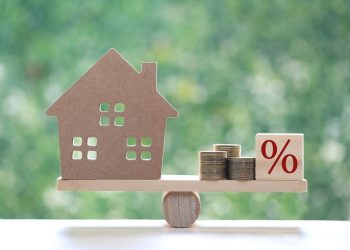By Ralph Roberts
RISMEDIA, March 16, 2007-My team and I flip houses in Michigan, where the housing market is currently experiencing a significant slump. Wherever these dips in the market occur, they often discourage investors, particularly novice investors, from flipping, but you don't need to get discouraged. With the right adjustments, you can flip houses profitably in a depressed market.
I suggest three strategies for successfully flipping houses in a down market:
– Focus on foreclosures.
– Look for deeper discounts.
– Buy and hold.
Focusing on foreclosures
When the housing bubble in a particular area bursts or rapidly deflates, neighborhoods are often littered with homes that have had all the equity stripped out of them. While declining property values erode the equity in the property from one end, homeowners borrow against the equity from the other end, until nothing is left. The market now has a glut of properties with little or no equity.
In such cases, finding a potentially profitable property is more challenging. You may find yourself having to deal directly with banks and REO departments instead of buying properties at sheriff sales, auctions, and "fire" sales. When buying REO properties from banks, the trick is to have your financing in place and be able to act quickly to solve the bank's problem. You see, banks don't like to own properties. They like to own mortgages. So, if you can lessen the bank's loss and stop the bleeding, you may be able to snag a profitable property for yourself.
Negotiating with banks can be tricky, but the more homes they end up with in foreclosure, the more they need investors to step in and buy them. I discuss some of the techniques for buying REO properties in my upcoming book, Foreclosure Investing For Dummies, which is due to be released in June.
Buying at deeper discounts
When I flip houses in a rising or steady market, my goal is to earn at least a 20% return on my total investment. To determine how much I can invest in a property, I start with the price I think I can sell the property for after fixing it up and I divide by 1.2. For example, if I think I can sell a house for $200,000 after repairs and renovations, I divide $200,000 by 1.2 and come up with something in the range of $167,000. I then subtract what I expect to pay in repairs and renovations, agent commissions (to sell the house), and holding costs (utilities, taxes, and insurance for the duration of the project). This gives me a ballpark idea of how much I can pay for the house to earn a 20% profit. If I add up all my estimated costs and come up with $30,000, for example, I could then afford to pay up to $137,000 for this house I plan to sell for $200,000.
In a declining market, I might start by dividing what I think I can sell the house for by 1.3 instead of 1.2. In the example of a $200,000 house, then, I would give myself only about $154,000 to invest, so I would have $13,000 less to invest in the project to be fairly certain of earning a 20% profit. In other words, I would be looking to buy the houses for 10% less than I would normally pay. In our example, I would be able to pay $124,000 for the house I plan to sell for $200,000, because I probably wouldn't be able to sell it for $200,000 a month or two after fixing it up.
Buying and holding-the long-term approach
Some real estate investors adhere to the long-term, buy-and-hold approach as their core strategy. They buy real estate and lease it out for a steady cash flow. The tenants pay down the mortgage principal while the property increases in value, and when the investor is ready to sell, they can typically cash out a huge amount of equity that's built up in the property over the years. In addition, the property offers some nice tax write-offs.
Flippers, by definition, are not buy-and-holders, but when the market takes a dive, and you can't immediately sell a property for a profit, a temporary shift to the buy-and-hold strategy can help you ride out the slump. If you can lease the property for enough money to cover your monthly mortgage payments, utilities, insurance, taxes, and maintenance costs, you can hold onto the property without having to sell it at a loss. You can then wait until the market recovers to sell. If your not landlord material, this isn't for you, but if you can wait out the market on someone else's dime…now you're talking.
Another option is to live in the house yourself for a while, do the renovations over the period of time it takes for the market to rebound, and then flip it. This strategy requires a little more of a commitment on your part and usually is only an option for singles or for adventurous couples and families, but when you're facing the prospect of selling the house at a loss or taking on a little discomfort and inconvenience, discomfort and inconvenience may not seem so bad. If you already have a house, consider putting both houses on the market. If your current residence sells first, move into the investment property!
Regardless of which method you chose, the flipping process is basically still the same-you're simply stretching it out over a longer period of time. Although flipping is usually an "in- the-moment" investment designed for those who desire quick profits and instant gratification, you may need to adjust your strategy to accommodate shifts in the housing market. To rephrase something I heard recently about the state of Michigan, house flippers who are working in a declining market have two options: change or die. For you evolutionists out there, you can either evolve as a new species of house flipper or you can go extinct. No doubt, some will go extinct, but it doesn't have to be you. Adapt, survive, and thrive.
For additional tips on flipping in a slow market and other guidance on buying, renovating, and selling houses for a profit, check out Ralph Roberts' recent book Flipping Real Estate For Dummies (John Wiley & Sons).










